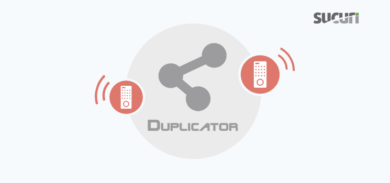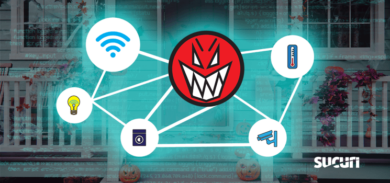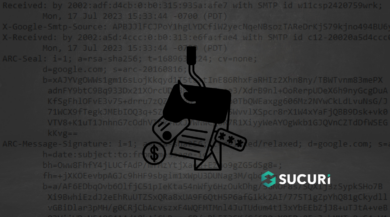We just added two tools to generate OSSEC rules online.
You May Also Like
WebSockets, Viagra and Fake CloudFlare CDN
- April 3, 2017
Recently we’ve seen some WordPress websites displaying unwanted banners at the bottom of the page which appear 15 seconds after browsing the website. Those banners…
Fake Human Verification Spam
- September 18, 2019
We recently released an update to our Labs Knowledgebase for new plugins that had been targeted during the month of July 2019. One of these…
Outdated Duplicator Plugin RCE Abused
- September 14, 2018
We’re seeing an increase in the number of cases where attackers are disabling WordPress sites by removing or rewriting its wp-config.php file. These cases are all linked…
Protecting Phishing Pages via .htaccess
- July 11, 2017
Phishers usually want to protect their pages from being detected by search engines and security companies. To achieve that, they add .htaccess files that deny…
Fake WordPress Plugin SiteSpeed Serves Malicious Ads & Backdoors
- July 16, 2020
Fake WordPress plugins appear to be trending as an effective way of establishing a foothold on compromised websites. During a recent investigation, we discovered a…
SSL Testing Methods
- February 17, 2020
Not all SSL configurations on websites are equal, and a growing number push for HTTPS everywhere. There is an increasing demand to check and quantify…
Halloween Tales of the IoT Crypt
- October 31, 2019
In the spirit of Halloween, we bring you some of the scariest internet of things (IoT) hacks that we have been made aware of. While…
Remote Access Trojan (RAT): Types, Mitigation & Removal
- February 16, 2024
Remote Access Trojans (RATs) are a serious threat capable of giving attackers control over infected systems. This malware stealthily enters systems (often disguised as legitimate…
How to Recognize & Avoid Phishing Emails: A Cautionary Tale
- July 20, 2023
We’ve all received spam and phishing emails — our inboxes are often full of them. They let us know that our package is being delivered…
Why Do Hackers Hack? – 3 Reasons Explained
- June 14, 2019
When considering why hackers are attacking websites, you might think that there’s a specific reason they target you as a website owner—your business, your reputation,…








